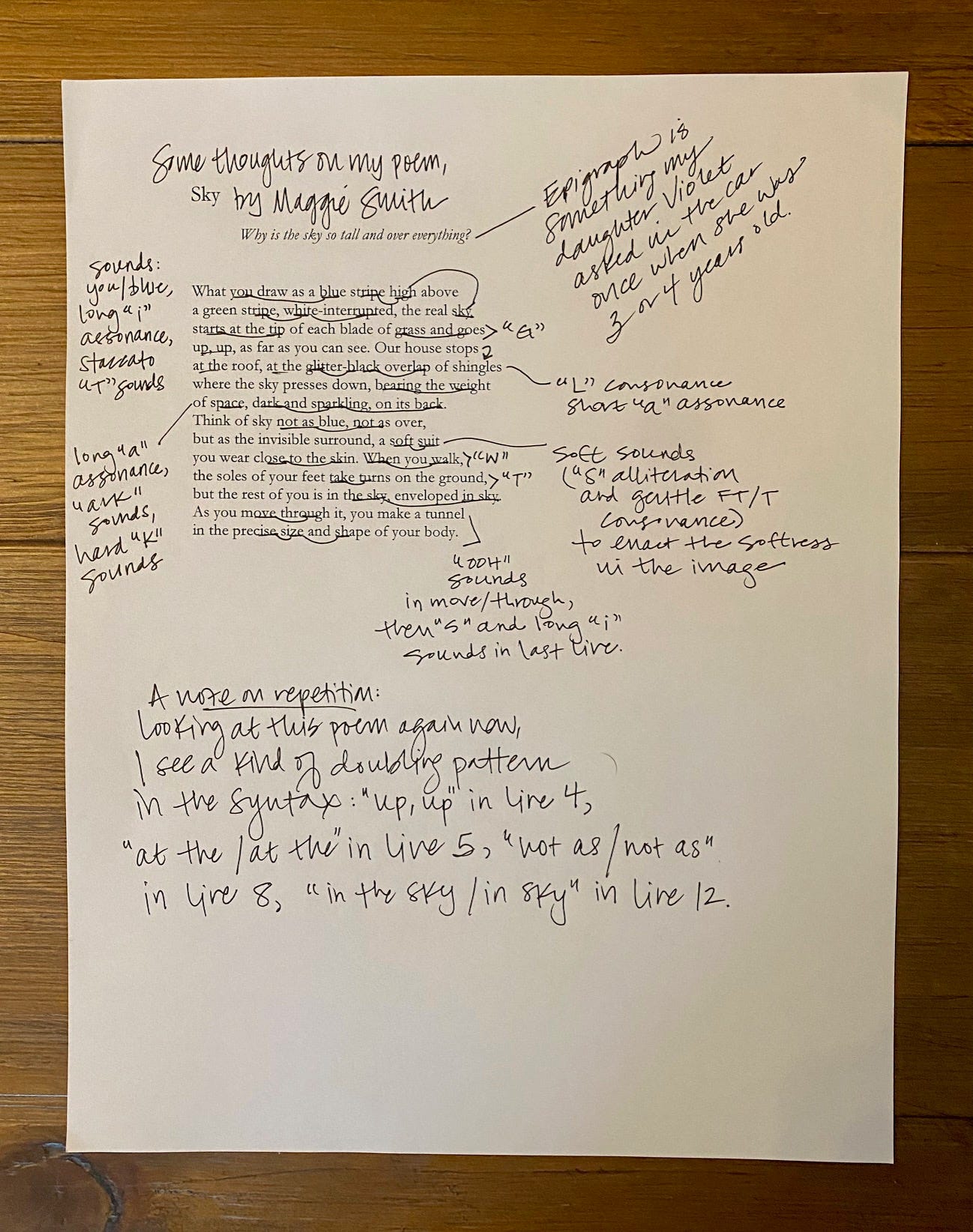Craft Tip
Breakdancing in a Straitjacket
Hi, Friend.
Recently I shared handwritten annotations of two poems, including “Sky.” “Sky” is the first of a series of “nonnets” (not-quite-sonnets) in Good Bones; each of the four sections in the book includes one. The others are “Past,” “Leaves,” and “Future.” Each one was inspired by, and takes as its epigraph, a question my then-preschooler (now high schooler!) asked me in the car. Yes, sometimes running errands can lead to poems.
I didn’t begin “Sky” or the other poems thinking of them as being in the sonnet tradition, but in the course of drafting them, it occurred to me that the constraint of fourteen lines and a turn—a kind of volta, though a less clearly identifiable one than you might find in a traditional sonnet—would help me do a certain amount of work in a very tight space.
Even if you don’t feel compelled to write in a received form—a sonnet, a villanelle, a sestina, a pantoum—try borrowing features of that form. I suspect the constraint will be useful and will lead to decision-making in the poem you might not access otherwise.
For example, borrow from the traditional sestina: Choose six words as the “heart” of your poem—six meaty words—and repeat them anywhere you see fit, not necessarily at the ends of lines. Or borrow from a haiku: Write a poem in tercets, with each stanza following the syllable count 5/7/5.
Conversely, you might find in revising a free-verse poem that it is gravitating naturally toward a received form. Does your poem with repeating lines want to be a villanelle or a pantoum? Does your longer poem with a clear rhetorical turn want to be condensed further into a sonnet?
Think of form not as the final “destination” for the poem but also as a way to get there—a way to access unexpected observations, arguments, connections, even revelations. As Terrance Hayes once said in response to a high school student’s question about why he writes in form: “If you can breakdance, that’s cool. If you can breakdance in a straitjacket, that’s even better.”
Here’s to the dance, however you do it.
Happy writing—
Maggie



I love the upbeat way in which you discuss your poetry and writing poetry!
As a poet I am very familiar with the way you approach how a poem develops. And what goes on with language as it develops. Very affirming for me.
My experience as a mother has always prompted musings about how constraint inspires unexpected creativity. Thank you for this. ❤️